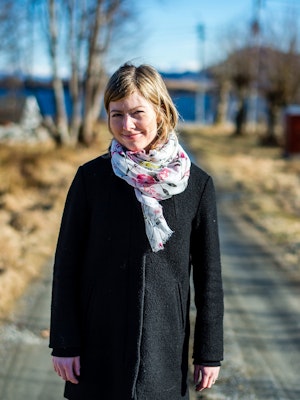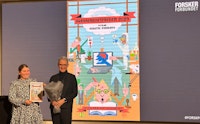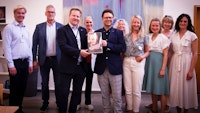“Music therapy can provide positive feelings and the experience of recognition and continuity, creating security in a group and forging interpersonal relations. Quite clearly, these parameters can be linked to a person’s health and quality of life,” says Merete Hoel Roaldsnes.
In the summer of 2017 Roaldsnes submitted her doctoral dissertation entitled Music in health-promotion work with single under-age refugees – a qualitative study of a music group for youths with a background as single refugee children.
What aroused your interest in music therapy for refugee children?
“As a newly trained music therapist I was doing project work at a transit reception centre for single, under-age refugees in the winter of 2008-2009. It was a collaboration between Save the Children and Hvalstad Transit Reception Centre. That set the process in motion for me because I saw challenges, but also opportunities in such work, and I saw what it meant to the participants. It awoke a desire within me to explore this further, so then I applied for a research fellowship at the Norwegian Academy of Music.”
Open, sensitive and flexible
Roaldsnes invited young people to take part in a music group over time. The participants lived mainly in shared accommodation for single refugees.
What were you hoping to achieve?
“I had hopes and expectations of positive experiences. Based on my own work experience and what I’d read, I thought music could contribute to positive experiences. But I didn’t know if that was true, you know, and what it entailed,” she says.
“After all, it could go really badly too. There was no foreseeing how the gatherings would go, and there were many things we didn’t know.”
The research issue was threefold. She wanted to find out how the participants felt about cooperating and participating in the music group, what health-promotion factors emerged in the participants’ experiences and what challenges the participants in the music group experienced.
“I was interested in their experiences! Their experience of taking part in the music group. The way my colleague [Marianne Lie Eide, ed.] and I set up the group did provide some guidelines for their experiences, of course, but I wanted to go into it with an investigative mind, and I was keen to have the greatest possible degree of cooperation with the young people: how they wanted to work with music, their interests and preferences. Together we found a path, and music to concentrate and focus on.”
Is it difficult to conduct research on the significance of music for a group that has been through so much – and may be experiencing a lot of stigmatisation?
“Single refugee children are vulnerable and particularly prone to mental health complaints. They may have traumas, may have a long journey behind them, and in all probability have experienced war and armed conflict, and lost family members,” Roaldsnes says. She stresses that the young people had a great deal to contribute nonetheless.
“By the same token they are resourceful children and adolescents! They need to be understood and viewed as both resourceful and vulnerable,” Roaldsnes emphasises.
“Yes, they had experienced difficult and bad things, but they were also undergoing a process to which they were adapting well. They were preoccupied with their schooling, had expectations for their future. I was apprehensive and didn’t know what I might encounter, whether situations might arise and things might be triggered, and how I was supposed to deal with it. So it was important to approach it with an open, sensitive and flexible mind.”




